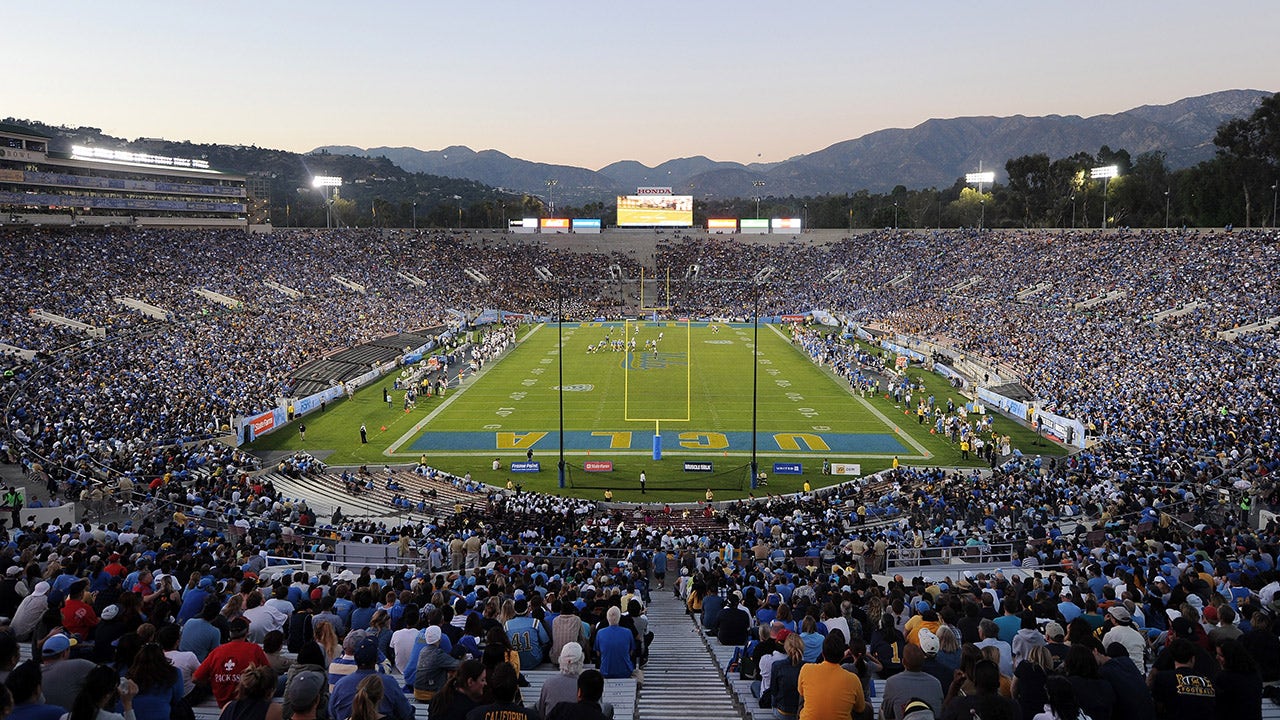The Rose Bowl Operating Company and the city of Pasadena have filed a lawsuit against UCLA, alleging breach of contract for the university’s attempt to move its home football games to SoFi Stadium. This move would end a 43-year tradition. The lawsuit highlights the conflict between tradition and financial incentives in college sports.
This article will delve into the details of the lawsuit, explore the reasons behind UCLA’s potential move, examine the implications for both the Rose Bowl and SoFi Stadium, and discuss the broader context of college sports and stadium deals.
UCLA’s History at the Rose Bowl
UCLA has called the Rose Bowl home since 1982, creating a strong connection between the university, the stadium, and the Pasadena community. The Rose Bowl, known for its rich history and iconic setting, has been a significant part of UCLA’s identity.
The Rose Bowl has a capacity of over 89,000. It has been the site of numerous memorable games and events. The stadium’s legacy is deeply intertwined with college football history, making UCLA’s potential departure a matter of great concern for many.
“This lawsuit arises in an era when money too often eclipses meaning and the pursuit of profit threatens to erase the very traditions that breathe life into institutions,” the suit claims. “Some commitments are too fundamental to be traded away.”
The Appeal of SoFi Stadium
SoFi Stadium, opened in 2020, offers state-of-the-art facilities and a more modern fan experience. Located approximately 12 miles from UCLA’s campus, it is significantly closer than the Rose Bowl, which is 26 miles away.
With a capacity of around 70,000, SoFi Stadium offers a more intimate setting compared to the Rose Bowl. The stadium’s amenities and location could potentially attract more fans and improve game-day attendance, which has been a struggle for UCLA in recent years.
The Times reported UCLA’s outside counsel, David L. Schrader, sent a letter to Pasadena attorney Nima Mohebbi in March, saying the school’s efforts to conduct “preliminary discussions” about relocating games did not constitute a “material breach” of its contract.
The Lawsuit: Key Arguments
The Rose Bowl Operating Company and the city of Pasadena argue that UCLA’s attempt to move its games constitutes a breach of their existing lease agreement, which runs through 2044. They claim that the move would cause significant economic and reputational damage to the Rose Bowl and the surrounding community.
The lawsuit emphasizes the long-standing partnership between UCLA and the Rose Bowl, highlighting the investments and commitments made over the past four decades. The city of Pasadena has expressed its determination to protect its contractual rights and ensure that UCLA honors its obligations.
“The City expects UCLA will honor the terms of the [lease] agreement, and the City Council will do everything in its power to protect and defend the City’s contractual rights,” the city of Pasadena said in a statement to ESPN on Thursday.
UCLA’s Attendance Challenges
One of the primary reasons behind UCLA’s consideration of moving to SoFi Stadium is the ongoing struggle with attendance at the Rose Bowl. With an average attendance of around 35,000 for home games, the stadium is often less than half full.
The Bruins’ attendance issues can be attributed to various factors, including the stadium’s distance from campus, the team’s performance, and changing fan preferences. Moving to a smaller, more modern stadium closer to campus could potentially revitalize fan engagement and boost attendance figures.
The Bruins (3-5, 3-2 Big Ten) have struggled with attendance in recent years. UCLA’s average attendance for its four home games is roughly 35,000. The stadium has a capacity of more than 89,000. SoFi Stadium’s capacity is about 20,000 fewer.
The Future of Stadium Deals in College Sports
The dispute between the Rose Bowl and UCLA underscores the growing tensions between tradition and financial considerations in college sports. As universities seek to maximize revenue and enhance the fan experience, they are increasingly willing to explore new stadium options, even if it means breaking long-standing ties.
This case could set a precedent for future stadium deals in college sports, potentially leading to more universities reevaluating their stadium arrangements and considering moves to newer, more lucrative venues. The outcome of the lawsuit could have significant implications for the future of college football and the role of historic stadiums like the Rose Bowl.
The school left the Pac-12 for the Big Ten last year along with USC, Washington and Oregon.
Conclusion: Tradition vs. Progress
The lawsuit between the Rose Bowl and UCLA highlights the ongoing debate between tradition and progress in college sports. While the Rose Bowl represents a historic legacy and a deep connection to the past, SoFi Stadium offers modern amenities and the potential for increased revenue and fan engagement.
Ultimately, the court’s decision will determine whether UCLA can move its games to SoFi Stadium or whether it must honor its existing lease agreement with the Rose Bowl. Regardless of the outcome, this case serves as a reminder of the complex challenges facing college sports programs as they navigate the changing landscape of stadium deals and fan expectations. The potential economic and reputational damage of UCLA’s attempt to break its lease is significant to the Rose Bowl Stadium, Pasadena residents, and the local and regional economy.”

Leave a Reply